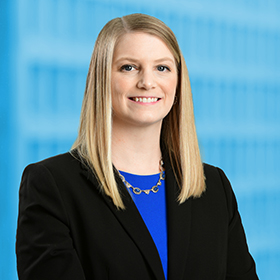CLIENT ALERT: Congress Extends Certain FQHCs’ Flexibility to Furnish Medicare Telehealth Services Post-COVID
On March 15, 2022, President Biden signed the Consolidated Appropriations Act of 2022 (CAA 2022), Pub. L. No. 117-103, a comprehensive funding bill that extends certain flexibilities that were permitted during the coronavirus (COVID-19) public health emergency (PHE) for Federally Qualified Health Centers (FQHCs) to furnish Medicare telehealth services. Generally, the extension of each flexibility is for a 151-day period that will begin the first day after the PHE ends, as declared by the Secretary of the Department of Health and Human Services (HHS). Currently, the PHE is set to expire on April 16, 2022. The law also specifies that a regulatory requirement associated with FQHC mental health visits via telecommunications, will not take effect until 151 days after the conclusion of the PHE.
Extension of Medicare Telehealth Flexibilities
As background, Congress required FQHCs and rural health clinics (RHCs) to be recognized on a temporary basis as Medicare telehealth “distant site providers” during the PHE, and additionally, HHS exercised its waiver authority under Section 1135 of the Social Security Act to relax many telehealth requirements during the PHE. The bullets below describe flexibilities provided under the statute, or by CMS via waiver, and whether such flexibilities will expire at the end of the PHE, extend for a 151-day period following the last day of the PHE, or remain in effect past PHE and the 151-day period. If the flexibility is extended for a 151-day period, FQHCs must stop applying the flexibility on the 152nd day after the end of the PHE.
- FQHCs as Distant Site Providers: Prior to the PHE, FQHCs were not considered distant practitioners eligible to bill Medicare for telehealth services. Congress enacted the Coronavirus Aid, Relief, and Economic Security Act (CARES Act), Pub. L. No. 116-136, on March 27, 2020, which permitted FQHCs and RHCs to bill Medicare for distant site telehealth services furnished on or after January 27, 2020 (the effective date of the PHE) through the end of PHE, and be paid for under a national average of the Physician Fee Schedule rate ($97.24, effective January 1, 2022). This flexibility will remain in effect for the duration of the PHE, and for a 151-day period following the end of the PHE.
- Other Distant Site Practitioners: By statute, Medicare telehealth services may be furnished only by “physicians and practitioners” as distant site providers. CMS issued Section 1135 waivers to allow qualified occupational therapists, qualified physical therapists, qualified speech-language pathologists, and qualified audiologists to bill Medicare for telehealth services during the PHE. Under the CAA 2022, such flexibility is extended and will expire 151-days after the PHE.
- Originating Site Requirements: As background, per Section 1834(m) of the Social Security Act, the originating site (where the beneficiary is located) for telehealth services must be in a qualifying “facility” as established in the law (the term “facility” includes FQHCs and RHCs), provided that the facility is located in a geographically remote area. Prior to the PHE, the beneficiary’s home was only considered an originating site in limited circumstances, such as for purposes of the treatment of substance use disorder services. Medicare would pay a facility fee for qualified originating sites, except if the originating site was the beneficiary’s home.
During the PHE, CMS issued Section 1135 waivers of the originating site requirements so that Medicare patients may access telehealth services while in their homes or in facilities that do not meet the geographical remoteness criteria. Absent action by Congress, this flexibility, which was essential to telehealth as a means to ensure continuity of care during COVID-19 stay-at-home orders, would lapse at the end of the PHE. Per the CAA 2022, this waiver of the originating site requirements will continue for a 151-day period post-PHE. Similar to pre-PHE, the originating site facility fee will only be paid to qualified facility types and would not be paid if the originating site is the beneficiary’s home.
- Mental Health Services: Per the SUPPORT for Patients and Communities Act of 2018, distant site providers may furnish telehealth services, on or after July 1, 2019, to an eligible beneficiary with a SUD diagnosis to treat such disorder or co-occurring mental health disorder to beneficiaries located at home or in a facility that does not satisfy the geographic remoteness requirements. Per the Consolidated Appropriations Act of 2021, Congress also removed the originating site geographic requirements and allowed for the home to be a qualifying originating site, for mental health services (absent a co-occurring SUD diagnosis) furnished after the termination of the PHE. As a precondition for the mental health telehealth services, the eligible beneficiary must have had an in-person appointment with the physician or practitioner within the prior six (6) months. In the CAA 2022, Congress amended the law to provide that the in-person prerequisite will not take effect until 151 days after the end of the PHE.
- Technology Requirements: Prior to the PHE, Medicare telehealth visits were required to be furnished by an interactive telecommunications system, which includes audio and video equipment that provides two-way, real-time interactive communication. CMS issued Section 1135 waivers to allow audio-only telehealth services and included telephonic evaluation and management (E/M) services (CPT 99441-99443) for the duration of the PHE. Under CAA 2022, such waiver will extend for a 151-day period following the last day of the PHE.
Clarification of Requirements for FQHC Mental Health Visits via Telecommunications
Aside from the telehealth statutory changes and waiver authorities that were extended via CAA 2022, the law also made a clarification regarding FQHC mental health visits that are furnished via telecommunications. Before January 1, 2022, the Medicare FQHC regulations required that FQHC “visits” be furnished in a “face-to-face” format, with that term interpreted by CMS to mean “in person.” In a rulemaking effective January 1, 2022, CMS amended the definition of the FQHC “mental health visit,” at 42 C.F.R. § 405.2463, to include visits furnished via telecommunications. Notably, these FQHC virtual mental health visits are not classified as “telehealth services,” but instead as FQHC visits, and accordingly, receive payment under the FQHC prospective payment system (PPS) methodology.
Per the regulation, if not provided in person, the FQHC mental health visit must be furnished via interactive, real-time, audio and video telecommunications technology, or by audio-only interactions, in cases where the patient is not capable of, or does not consent to, the use of video technology for the purposes of diagnosis, evaluation, or treatment of a mental health disorder. Additionally, CMS specified in the regulation that to be eligible for mental health visits that would be paid to FQHCs under PPS, the beneficiary must have received a mental health visit within 6 months prior to the furnishing of the mental health visit via telecommunications, and that (with some exceptions) an in-person mental health service must be provided at least every 12 months while the beneficiary is receiving services via telehealth for diagnosis, evaluation, or treatment of mental health disorders. The regulatory change, along with the in-person prerequisite for FQHC mental health visits, took effect on January 1, 2022. However, CAA 2022 postponed the application of the in-person mental health visit prerequisite for FQHC virtual mental health services until 151 days after the conclusion of the PHE. This means that FQHCs may provide mental health visits via telecommunications, until the extended deadline, without conditioning that service on the patient having had an in-person mental health visit in the prior six months.
If you have any questions about this update or other matters, please call 202.466.8960 or email Susannah Vance Gopalan at sgopalan@feldesman.com or Brittney Rudolph at bhall@feldesman.com.



